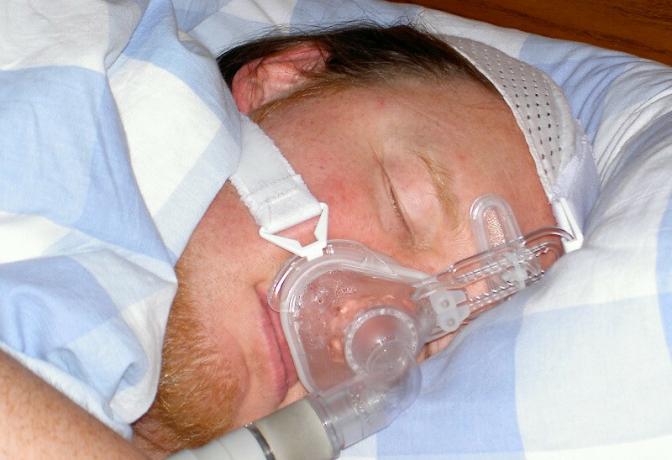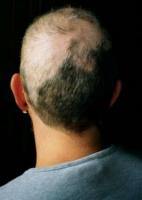What to do about anxiety when sleeping with sleep apnea?
Sleep apnea is a relatively common type of sleep disorder. in the population, since it is estimated that it affects around 10% of people. In fact, it is especially common among the elderly, since in older people, the percentage of prevalence rises to approximately 30%.
But the fact that it is a very generalized alteration does not mean that we should assume that it is something normal and that it is not convenient to do anything about it; today there are effective ways to treat it to prevent sleep apnea from damaging our quality of life in a meaningful way, and in this article we will focus on those that have to see with the management of anxiety, which can be both a cause and a consequence of this problem.
- Related article: "Top 7 Sleep Disorders"
What are the causes of sleep apnea?
Specifically, sleep apnea consists of an alteration through which, while we sleep, a point at which air stops reaching the lungs for excessively long periods of time, more than 10 seconds.
This interruption of the air intake through inspirations can be total or partial; in the latter case, this phenomenon is usually referred to as hypopnea. Y
when the body notices that it lacks oxygen, brain activity is altered and you enter a state of greater activation than normal to intervene urgently and breathe again something that usually causes us to wake up every time this happens. As a consequence, we slept little and badly.In most cases, the causes of sleep apnea are several factors combining with each other, some of a psychological/behavioral nature and others of an organic/biological nature. Thus, a distinction is made between obstructive apnea, in which there is a temporary collapse of the upper airway (a part of the tissue lowers or becomes too flexible, narrowing the space available for fluid to flow air); central apnea, in which the central nervous system briefly stops issuing the command to breathe; and mixed apnea, in which both occur. Obstructive sleep apnea is by far the most common type..
On the other hand, it can be said that stress and anxiety play a relevant role in many cases of sleep apnea. When we accumulate stress and anxiety at levels that exceed what is mentally healthy, a series of changes take place both in the patterns of activation of the brain as in the respiratory tract: we tend to keep the muscles more tense than normal, which which can promote snoring and interruption of incoming airflow.
- You may be interested: "Respiratory system: characteristics, parts, functions and diseases"
Why is it important to take stockings for sleep apnea?
People who suffer from sleep apnea and who have not started any type of treatment experience various forms of discomfort, both physical and psychological. This is due to the poor quality of sleep that is a consequence of sleeping difficulties; even if you do not remember it, the person wakes up several times throughout the night due to the lack of air reaching their lungs, and even when sleeping, not spending enough time in each stage of sleep because the activity of the nervous system is affected by these difficulties in breathing well.
Thus, the lack of adequate rest generates a feeling of fatigue, difficulty concentrating on tasks, memory problems (transient), and also makes the person more exposed to anxiety and stress, all of which are common symptoms of mood disorders. sleep. But in addition, sleep apnea has other harmful consequences in the field of health physical, especially in the medium and long term (while the psychological effects are noticeable first day).
Specifically, it tends to increase the risk of cardiovascular problems: contributes to high blood pressure and increases the chances of strokes. It also influences the risk of erectile dysfunction and headaches, and can lead to low libido.
- Related article: "The 5 stages of sleep: from slow waves to REM"
How can it be treated by intervening in anxiety?
The most effective biomedical treatment for sleep apnea is based on the use of the CPAP machine (Continuous Positive Airway Pressure).

It is a type of relatively small and very quiet electronic device that allows the level of air pressure to be regulated. supplied by the respiratory tract and the level of humidity (thanks to the humidifier that most of these have integrated machines). But in more extreme cases, it is recommended to go through the operating room.
However, as we have seen before, treating stress and anxiety can also help enjoy a longer and more restful sleep. Let's look at some of the most useful strategies to achieve this.
Training in relaxation techniques
Enforcement of consistent sleep schedules
Adoption of healthy lifestyle habits (to have more energy and ability to tackle tasks).
practice of Mindfulness to mitigate intrusive thoughts
Diaphragmatic breathing practice
Improved self-esteem and adequacy of self-efficacy
Avoid binge eating
Avoid drug use
You may be interested: "What is anxiety: how to recognize it and what to do"
Do you want to have psychological assistance?
If you are interested in having professional psychological support, I invite you to contact me.
My name is Thomas Saint Cecilia and I am an expert psychologist in intervention from the cognitive-behavioral model, with which I work helping people, families and companies. I can offer you my services in person or online by video call.

